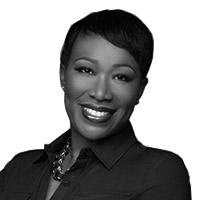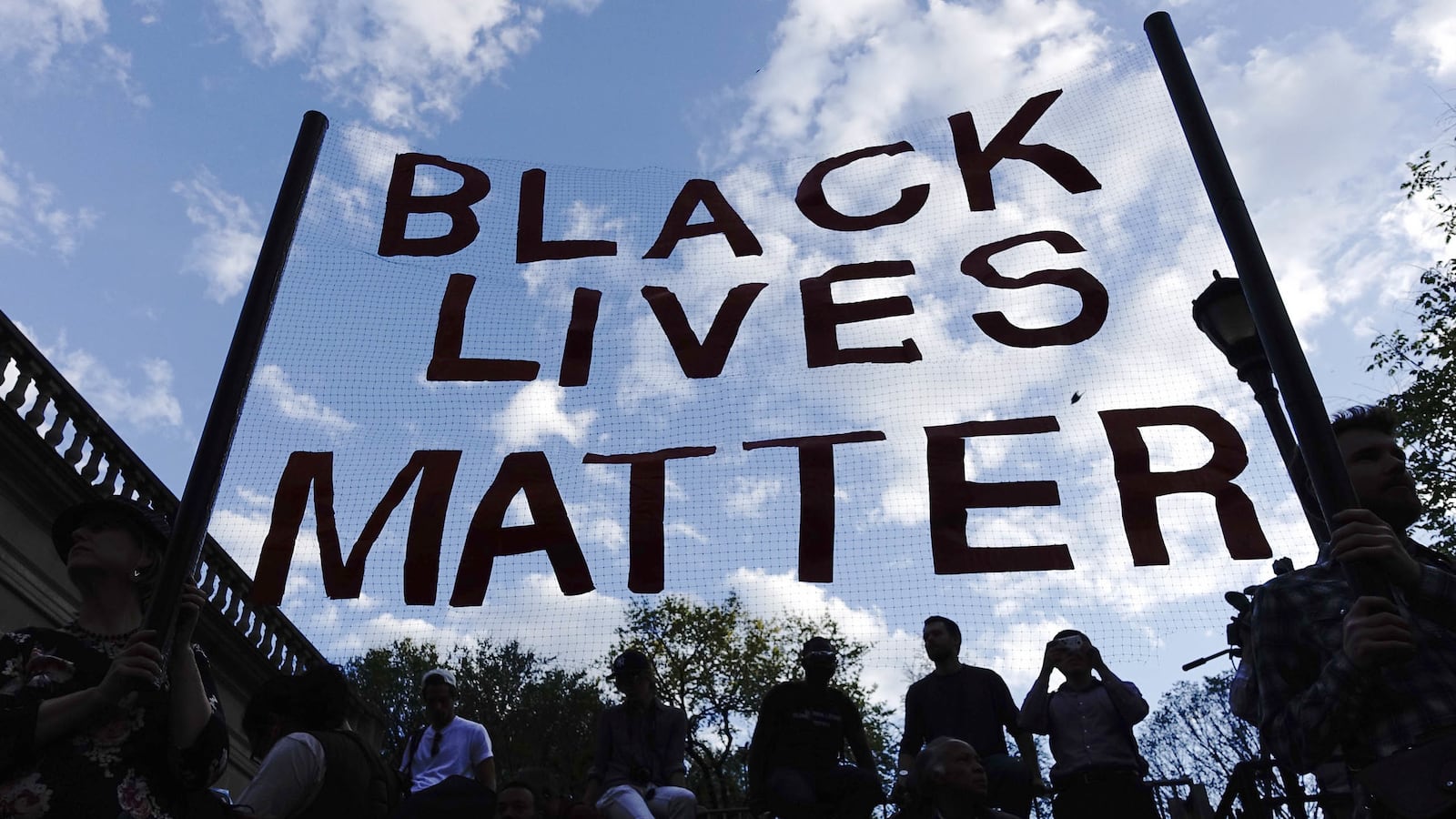As she watched the recent Democratic debate, former Ohio State Senator Nina Turner felt her party could take great pride in offering the country a substantive discussion, in contrast to the three-ring circus taking place on the other side. But as the lone question relating to the lives of 41.7 million African Americans was tossed to CNN’s Don Lemon, Turner, a political and social activist, was among many African Americans who had reason to cringe.
The “black question” was about as facile as it gets, with all due respect to the “real person” chosen to deliver it: “Do black lives matter, or do all lives matter?”
Cue the now well-rehearsed responses of the leading Democratic candidates, who in the recent past have been tripped up by their curious failure to prepare to respond to the most notable civil rights movement of the present era. The course correction goes something like this:
“Of course black lives matter,” says Senator Sanders in his Brooklyn drawl.
“You bet black lives matter!” says Secretary Clinton, with a Midwestern twang.
“Black lives matter? Count me in!” Martin O’Malley chimes in, glancing warily around the room as if to make sure no one’s planning a follow-up about his time as Baltimore’s mayor.
It’s not that the BLM movement is not important, says Turner. “It is,” she says. “But it seems the pendulum has swung too far to the superficial, and the media continues to perpetuate a misconception that the African-American community is homogeneous and its needs are singular.”
But it’s not just the media.
“I could not help but think the Democratic presidential candidates believe if they give the shoutout, ‘Black Lives Matter,’ that their obligation to the African-American community has been fulfilled,” Turner continues. “The fact of the matter is the lives of African Americans in this country matter deeply. They matter in the workplace and the schoolhouse. [They] matter in the criminal justice space and at the ballot box. They matter in the community. We need a nominee who understands that ‘Black Lives Matter’ is not a box to check off. It is one of many powerful battle cries of a people whose political prowess provides a loyal base for the Democratic Party.”
Indeed, the Democratic Party is more dependent on black voters than they often admit. Two-thirds of African Americans identify as Democrats while just 5 percent do as Republicans, according to the Pew Research Center. And black voters make up nearly a quarter of the Democratic base. So when black voters stay home, face artificial roadblocks to voting, or start to defect—as they did in Ohio during the 2004 presidential election—Democratic hopes evaporate.
Additionally, black women “are the foundation of a winning coalition,” says Glynda Carr, co-founder of Higher Heights for America, which specializes in engaging black women in politics. Black women had the highest turnout of any demographic in 2012, at 72 percent. And they have a multiplier effect, says Carr.
“We know that when you ‘fire up’ a Black woman she does not go to the polls alone. She brings her household, her block, her church and sorority. Candidates cannot wait until 14 days before primary and general elections in keys states with large Black populations to simply engage Black women in a [get out the vote] campaign. This will prove to be a failing strategy.”
So it’s no small thing that some black Democrats are quietly grousing that candidates repeating the phrase “black lives matter” is becoming a substitute for sustained engagement with black voters. To some, this reflects the Democrats’ lack of urgency about igniting African-American interest in the coming election.
This isn’t to say that Black Lives Matter isn’t getting some results. DeRay Mckesson, a prominent BLM activist who recently met with both Sanders and Clinton, points out on his website that as a result of pressure from activists, the Sanders and O’Malley campaigns have posted criminal justice reform platforms to their websites, and the Clinton campaign has posted drafts on criminal justice and voting rights.
Clinton and Sanders have also met with the families of Walter Scott and Sandra Bland, respectively.
Mckesson says that if Black Lives Matter “is shorthand for anything, it is shorthand for the urgent demand for a justice and equitable world that values black lives. It is not shorthand for any political party.” Campaign Zero, a BLM group pushing a specific agenda to counteract police violence, has meeting requests out to O’Malley, as well as Republicans Marco Rubio and Ben Carson.
But with the overwhelming majority of black voters consistently favoring the Democratic Party, that’s where black political activists are focusing their attention.
“The Democrats have offered lots of policy on issues that impact the nation and African Americans, yet it feels like the competition for black votes is nonexistent,” says Democratic strategist Jamal Simmons.
“Along with young whites and Latinos, black voters are one-third of the rising American electorate that must turn out in large numbers for any Democrat to win, yet candidates just seem to be offering them the bare minimum policy and attention. Having a stance on criminal justice reform and Black Lives Matter is necessary but not sufficient to addressing these voters' concerns.”
“Candidates saying ‘Black Lives Matter’ may have caught voters’ attention, but we are looking for much more than a sound bite,” Carr adds. “Black voters are concerned about issues affecting our pocketbooks. We are looking for candidates to address our very real concerns about access to jobs with a living wage and benefits to affordable health care and child care."
“The African-American community deserves respect and presidential policies that advance their generational agenda of justice, economic progress and social justice,” Turner says. “Anything less is unacceptable.”
Black Lives Matter co-founder Opal Tometi agrees.
“I have yet to see a substantive cross-cutting racial justice platform from any of the candidates,” Tometi says. “Simply declaring, ‘Black Lives Matter,’ can never be substitute for tangible, transformative policy agendas that offer true solutions from issues from jobs to housing, immigration, education to LGBTQ, health care, mass incarceration and more! I won’t be satisfied until I see the candidates with a clearly articulated platform; one that demonstrates they understand how race and racism works at a structural level.”
Democratic strategist Angela Rye says the lack of policy breadth among Democrats points to “why it's imperative for BLM to have some kind of pledge/agenda that candidates have to subscribe to.”
“They don’t know what to say,” Rye says of the candidates. “They aren’t activists, just politicians.”
The campaigns’ responses to the criticism are varied. The O’Malley campaign forwarded the candidate’s debate answer, that “... the point that the Black Lives Matter movement is making is a very, very legitimate and serious point, and that is that as a nation we have undervalued the lives of black lives, people of color.”
Tyrone Gale, the African-American outreach director for the Clinton campaign, emailed that “Hillary Clinton is committed to strengthening African American families and communities, and has been discussing a number of policies important to the community since day 1 of her campaign. As Hillary has said, in order to implement real change, we must confront the deep-seated biases and racial injustice that still remains in our country today.”
Those sentiments are nice enough. But whether they satisfy activists who want a more holistic approach to black voter outreach remains to be seen.






